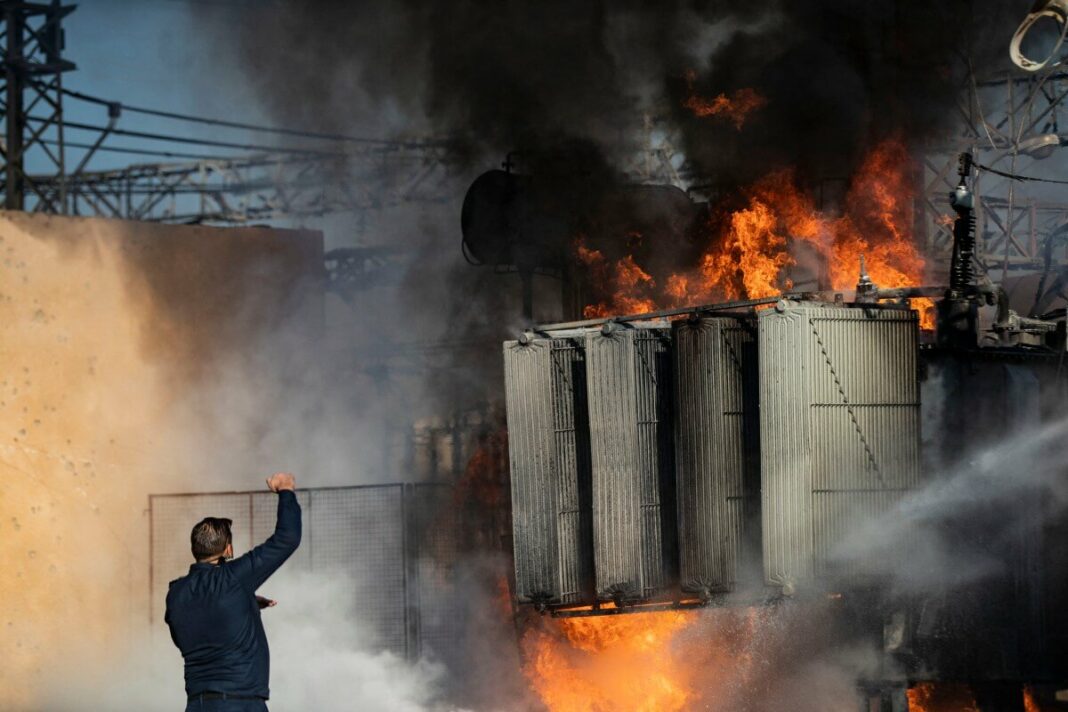Human Rights Watch, which released an extensive report in October about the damage caused by Turkish airstrikes to critical infrastructure northeast Syria, has once again warned about the humanitarian impacts of the airstrikes on the region.
Hiba Zayadin, a senior researcher at HRW’s Middle East and North Africa Divisions, wrote at a time when “the world’s attention remains fixed on the devastating conflict unfolding in Gaza, another crisis is intensifying under the radar in northeast Syria. There, Türkiye’s airstrikes and drone attacks on critical civilian infrastructure are putting livelihoods at risk and severing communities from electricity, medical care, and other essential services.”
On October 5 Turkey launched an aerial campaign in northern Iraq and Syria’s northeast after the outlawed Kurdistan Workers’ Party (PKK) claimed responsibility for a bombing near government buildings in Ankara that injured two police officers. Turkey claimed the attackers came from and were trained in Syria.
The semi-autonomous Kurdish administration has denied the claim and said dozens of people, including security personnel and civilians, have been killed in the Turkish attacks.
In December and January, Turkey intensified its airstrikes to include medical facilities and crucial access roads used by humanitarian responders, according to the Northeast Syria (NES) NGO Forum, a coalition of international organizations operating in the area. Zayadin said attacks that cause disproportionate damage to civilians and civilian objects are prohibited under international humanitarian law and that deliberate targeting of civilian infrastructure is a war crime.
On January 29 the NES NGO Forum said 1 million people in cities and villages had been cut off from electricity and that over 2 million had limited access to safe water. Damage to medical facilities targeted in December has disrupted the oxygen supply to more than a dozen private and public hospitals, and strikes on 28 health facilities have disrupted their services, increasing the risk of water-borne disease. The forum warned that the “scale of damage far supersedes the humanitarian community’s capacity to sustain emergency life-saving service provision.”
Turkey has for years carried out military operations and airstrikes in northern Syria with the stated aim of targeting the Syrian Kurdish armed group, the People’s Protections Unit (YPG). Turkey views the YPG as an extension of the PKK, which is listed as a terrorist organization by Turkey and much of the international community.
Zayadin said as the crisis in northeast Syria escalates, action is needed to mitigate the humanitarian impacts on the civilian population. She called on Turkey to immediately stop targeting critical civilian infrastructure, respect international humanitarian law and hold to account those responsible for serious violations.
“All countries need to address the plight of the region’s populace even if other conflicts are dominating the headlines,” she added.
In its October report HRW warned that drone airstrikes by the Turkish Armed Forces (TSK) on Kurdish-held areas of northeast Syria between October 5 and 10 damaged critical infrastructure and resulted in water and electricity disruptions for millions of people and warned of a deteriorating humanitarian crisis in the region.
The Kurdish-led Autonomous Administration of North and East Syria, which governs the targeted areas, confirmed that the attacks on water and electrical power stations resulted in the “complete cutoff of electricity and water supply” from the al-Hasakeh Governorate.
Following the attack in Ankara, Turkish Foreign Minister Hakan Fidan said all infrastructure, large facilities and energy facilities belonging to armed Kurdish groups in Iraq and Syria were legitimate targets for the TSK. His remarks were interpreted as a declaration of war.



